『武士道 Bushido 』-新渡戸稲造(Inazo Nitobé)-
Chapter 05
(Benevolence, the Feeling of Distress 「仁」人の上に立つ条件とは何か)
Bushido, the Soul of Japan by Inazo Nitobe
[Book]
[reading]
・Chapter TOP 新渡戸稲造(Inazo Nitobé)TOP
・Chapter 00(Prefaces 序文)
Chapter 00(概要)
・Chapter 01(Bushido as an Ethical System 武士道とは)
・Chapter 02(Sources of Bushido 武士道の源)
・Chapter 03(Rectitude or Justice 「義」)
・Chapter 04(Courage, the Spirit of Daring and Bearing 「勇」)
・Chapter 05(Benevolence, the Feeling of Distress 「仁」)
・Chapter 06(Politeness 「礼」)
・Chapter 07(Veracity or Truthfulness 「誠」)
・Chapter 08(Honor 「名誉」)
・Chapter 09(The Duty of Loyalty 「忠義」)
・Chapter 10(Education and Training of a Samurai 武士は何を学びどう己を磨いたか)
・Chapter 11(Self-Control 人に勝ち己に勝つために)
・Chapter 12(The Institutions of Suicide and Redress 「切腹」)
・Chapter 13(The Sword, the Soul of the Samurai 「刀」)
・Chapter 14(The Training and Position of Woman 武士道が求めた女性の理想像)
・Chapter 15(The Influence of Bushido 「大和魂」)
・Chapter 16(Is Bushido Still Alive? 武士道は蘇るか)
・Chapter 17(The Future of Bushido 武士道から何を学ぶか)
・[修養]、
・[自警録]
love, magnanimity, affection for others, sympathy and pity, which were ever recognized to be supreme virtues, the highest of all the attributes of the human soul. Benevolence was deemed a princely virtue in a twofold sense;—princely among the manifold attributes of a noble spirit; princely as particularly befitting a princely profession. We needed no Shakespeare to feel—though, perhaps, like the rest of the world, we needed him to express it—that mercy became a monarch better than his crown, that it was above his sceptered sway. How often both Confucius and Mencius repeat the highest requirement of a ruler of men to consist in benevolence. Confucius would say, "Let but a prince cultivate virtue, people will flock to him; with people will come to him lands; lands will bring forth for him wealth; wealth will give him the benefit of right uses. Virtue is the root, and wealth an outcome." Again, "Never has there been a case of a sovereign loving benevolence, and the people not loving righteousness," Mencius follows close at his heels and says, "Instances are on record where individuals attained to supreme power in a single state, without benevolence, but never have I heard of a whole empire falling into the hands of one who lacked this virtue." Also,—"It is impossible that any one should become ruler of the people to whom they have not yielded the subjection of their hearts." Both defined this indispensable requirement in a ruler by saying, "Benevolence—Benevolence is Man." Under the régime of feudalism, which could easily be perverted into militarism, it was to Benevolence that we owed our deliverance from despotism of the worst kind. An utter surrender of "life and limb" on the part of the governed would have left nothing for the governing but self-will, and this has for its natural consequence the growth of that absolutism so often called "oriental despotism,"—as though there were no despots of occidental history!
Let it be far from me to uphold despotism of any sort; but it is a mistake to identify feudalism with it. When Frederick the Great wrote that "Kings are the first servants of the State," jurists thought rightly that a new era was reached in the development of freedom. Strangely coinciding in time, in the backwoods of North-western Japan, Yozan of Yonézawa made exactly the same declaration, showing that feudalism was not all tyranny and oppression. A feudal prince, although unmindful of owing reciprocal obligations to his vassals, felt a higher sense of responsibility to his ancestors and to Heaven. He was a father to his subjects, whom Heaven entrusted to his care. In a sense not usually assigned to the term, Bushido accepted and corroborated paternal government—paternal also as opposed to the less interested avuncular government (Uncle Sam's, to wit!). The difference between a despotic and a paternal government lies in this, that in the one the people obey reluctantly, while in the other they do so with "that proud submission, that dignified obedience, that subordination of heart which kept alive, even in servitude itself, the spirit of exalted freedom."The old saying is not entirely false which called the king of England the "king of devils, because of his subjects' often insurrections against, and depositions of, their princes," and which made the French monarch the "king of asses, because of their infinite taxes and Impositions," but which gave the title of "the king of men" to the sovereign of Spain "because of his subjects' willing obedience." But enough!—
Burke, French Revolution.
Virtue and absolute power may strike the Anglo-Saxon mind as terms which it is impossible to harmonize. Pobyedonostseff has clearly set before us the contrast in the foundations of English and other European communities; namely that these were organized on the basis of common interest, while that was distinguished by a strongly developed independent personality. What this Russian statesman says of the personal dependence of individuals on some social alliance and in the end of ends of the State, among the continental nations of Europe and particularly among Slavonic peoples, is doubly true of the Japanese. Hence not only is a free exercise of monarchical power not felt as heavily by us as in Europe, but it is generally moderated by parental consideration for the feelings of the people. "Absolutism," says Bismarck, "primarily demands in the ruler impartiality, honesty, devotion to duty, energy and inward humility." If I may be allowed to make one more quotation on this subject, I will cite from the speech of the German Emperor at Coblenz, in which he spoke of "Kingship, by the grace of God, with its heavy duties, its tremendous responsibility to the Creator alone, from which no man, no minister, no parliament, can release the monarch."
We knew Benevolence was a tender virtue and mother-like. If upright Rectitude and stern Justice were peculiarly masculine, Mercy had the gentleness and the persuasiveness of a feminine nature. We were warned against indulging in indiscriminate charity, without seasoning it with justice and rectitude. Masamuné expressed it well in his oft-quoted aphorism—"Rectitude carried to excess hardens into stiffness; Benevolence indulged beyond measure sinks into weakness."
Fortunately Mercy was not so rare as it was beautiful, for it is universally true that "The bravest are the tenderest, the loving are the daring." "Bushi no nasaké"—the tenderness of a warrior—had a sound which appealed at once to whatever was noble in us; not that the mercy of a samurai was generically different from the mercy of any other being, but because it implied mercy where mercy was not a blind impulse, but where it recognized due regard to justice, and where mercy did not remain merely a certain state of mind, but where it was backed with power to save or kill. As economists speak of demand as being effectual or ineffectual, similarly we may call the mercy of bushi effectual, since it implied the power of acting for the good or detriment of the recipient.
Priding themselves as they did in their brute strength and privileges to turn it into account, the samurai gave full consent to what Mencius taught concerning the power of Love. "Benevolence," he says, "brings under its sway whatever hinders its power, just as water subdues fire: they only doubt the power of water to quench flames who try to extinguish with a cupful a whole burning wagon-load of fagots." He also says that "the feeling of distress is the root of benevolence, therefore a benevolent man is ever mindful of those who are suffering and in distress." Thus did Mencius long anticipate Adam Smith who founds his ethical philosophy on Sympathy.
It is indeed striking how closely the code of knightly honor of one country coincides with that of others; in other words, how the much abused oriental ideas of morals find their counterparts in the noblest maxims of European literature. If the well-known lines,
Hae tibi erunt artes—pacisque imponere morem,
Parcere subjectis, et debellare superbos,
were shown a Japanese gentleman, he might readily accuse the Mantuan bard of plagiarizing from the literature of his own country. Benevolence to the weak, the downtrodden or the vanquished, was ever extolled as peculiarly becoming to a samurai. Lovers of Japanese art must be familiar with the representation of a priest riding backwards on a cow. The rider was once a warrior who in his day made his name a by-word of terror. In that terrible battle of Sumano-ura, (1184 A.D.), which was one of the most decisive in our history, he overtook an enemy and in single combat had him in the clutch of his gigantic arms. Now the etiquette of war required that on such occasions no blood should be spilt, unless the weaker party proved to be a man of rank or ability equal to that of the stronger. The grim combatant would have the name of the man under him; but he refusing to make it known, his helmet was ruthlessly torn off, when the sight of a juvenile face, fair and beardless, made the astonished knight relax his hold. Helping the youth to his feet, in paternal tones he bade the stripling go: "Off, young prince, to thy mother's side! The sword of Kumagaye shall never be tarnished by a drop of thy blood. Haste and flee o'er yon pass before thy enemies come in sight!" The young warrior refused to go and begged Kumagaye, for the honor of both, to despatch him on the spot. Above the hoary head of the veteran gleams the cold blade, which many a time before has sundered the chords of life, but his stout heart quails; there flashes athwart his mental eye the vision of his own boy, who this self-same day marched to the sound of bugle to try his maiden arms; the strong hand of the warrior quivers; again he begs his victim to flee for his life. Finding all his entreaties vain and hearing the approaching steps of his comrades, he exclaims: "If thou art overtaken, thou mayest fall at a more ignoble hand than mine. O, thou Infinite! receive his soul!" In an instant the sword flashes in the air, and when it falls it is red with adolescent blood. When the war is ended, we find our soldier returning in triumph, but little cares he now for honor or fame; he renounces his warlike career, shaves his head, dons a priestly garb, devotes the rest of his days to holy pilgrimage, never turning his back to the West, where lies the Paradise whence salvation comes and whither the sun hastes daily for his rest.
Critics may point out flaws in this story, which is casuistically vulnerable. Let it be: all the same it shows that Tenderness, Pity and Love, were traits which adorned the most sanguinary exploits of the samurai. It was an old maxim among them that "It becometh not the fowler to slay the bird which takes refuge in his bosom." This in a large measure explains why the Red Cross movement, considered peculiarly Christian, so readily found a firm footing among us. For decades before we heard of the Geneva Convention, Bakin, our greatest novelist, had familiarized us with the medical treatment of a fallen foe. In the principality of Satsuma, noted for its martial spirit and education, the custom prevailed for young men to practice music; not the blast of trumpets or the beat of drums,—"those clamorous harbingers of blood and death"—stirring us to imitate the actions of a tiger, but sad and tender melodies on the biwa, soothing our fiery spirits, drawing our thoughts away from scent of blood and scenes of carnage. Polybius tells us of the Constitution of Arcadia, which required all youths under thirty to practice music, in order that this gentle art might alleviate the rigors of that inclement region. It is to its influence that he attributes the absence of cruelty in that part of the Arcadian mountains.
A musical instrument, resembling the guitar.
Nor was Satsuma the only place in Japan where gentleness was inculcated among the warrior class. A Prince of Shirakawa jots down his random thoughts, and among them is the following: "Though they come stealing to your bedside in the silent watches of the night, drive not away, but rather cherish these—the fragrance of flowers, the sound of distant bells, the insect humming of a frosty night." And again, "Though they may wound your feelings, these three you have only to forgive, the breeze that scatters your flowers, the cloud that hides your moon, and the man who tries to pick quarrels with you."
It was ostensibly to express, but actually to cultivate, these gentler emotions that the writing of verses was encouraged. Our poetry has therefore a strong undercurrent of pathos and tenderness. A well-known anecdote of a rustic samurai illustrates a case in point. When he was told to learn versification, and "The Warbler's Notes" was given him for the subject of his first attempt, his fiery spirit rebelled and he flung at the feet of his master this uncouth production, which ran
The uguisu or warbler, sometimes called the nightingale of Japan.
"The brave warrior keeps apart
The ear that might listen
To the warbler's song."
His master, undaunted by the crude sentiment, continued to encourage the youth, until one day the music of his soul was awakened to respond to the sweet notes of the uguisu, and he wrote
"Stands the warrior, mailed and strong,
To hear the uguisu's song,
Warbled sweet the trees among."
We admire and enjoy the heroic incident in Körner's short life, when, as he lay wounded on the battle-field, he scribbled his famous "Farewell to Life." Incidents of a similar kind were not at all unusual in our warfare. Our pithy, epigrammatic poems were particularly well suited to the improvisation of a single sentiment. Everybody of any education was either a poet or a poetaster. Not infrequently a marching soldier might be seen to halt, take his writing utensils from his belt, and compose an ode,—and such papers were found afterward in the helmets or the breast-plates, when these were removed from their lifeless wearers.
What Christianity has done in Europe toward rousing compassion in the midst of belligerent horrors, love of music and letters has done in Japan. The cultivation of tender feelings breeds considerate regard for the sufferings of others. Modesty and complaisance, actuated by respect for others' feelings, are at the root of
Read文献、
book文献
TOP
日本の魂ー日本思想の解明ー
日本的思考の根源を見る。
”忠義”は追従ではない。”名誉”は求める心である。
(第三章 義-あるいは正義について)
サムライにとって、 卑怯な行動や不正な行動ほど恥ずべきものはない。
(第九章 忠義)
武士道は、われわれの良心を主君の奴隷となすべきことを要求しなかった
(第十章 武士の教育)
武士道は経済とは正反対のものである。それは貧しさを誇る。
(第十一章 克己)
心の奥底の思いや感情—特に宗教的なもの—を雄弁に述べ立てることは、日本人の間では、それは深遠でもなく、 誠実でもないことの疑いないしるしだと受け取られた。
(第十四章 女性の教育と地位)
妻がその夫、家庭そして家族のために身を捨てることは、男が主君と国のために身を捨てるのと同様、自発的かつみごとになされた。
|
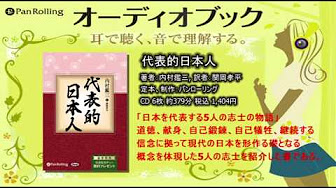
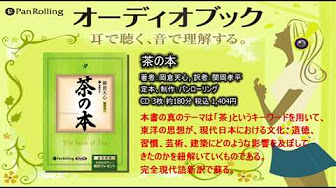
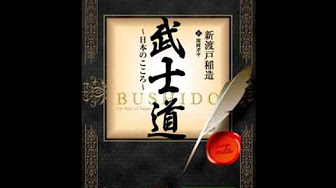


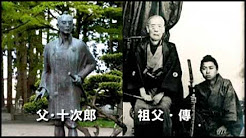

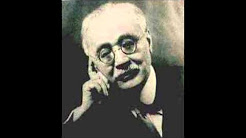



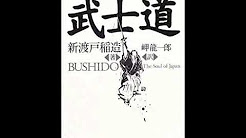
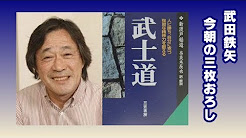
・新渡戸稲造
第1弾「世界を結ぶ『志』~新渡戸稲造の生涯~」、
第2弾「未来につながる『道』~新渡戸稲造の武士道~」、
第3弾「すべてに根ざす『愛』~新渡戸稲造の苦悩~」、
・ 新渡戸稲造の至極の名言集
・「新渡戸稲造の名言」20話
| |
・Bushido: The Soul of Japan by Inazo Nito(1-18)
・Bushido: The Soul of Japan by Inazo Nitobe(1-18)
・武士道「BUSHIDO」Japanese Ver.
・≪AI朗読≫武士道
・【武田鉄矢】『武士道』完全版
|
Bushido, the Soul of Japan
『武士道は定式化されたものではないが、昔もそして今も、日本人を鼓舞し、わが国を動かす原動力なのである』
日本人が日本人たりえる所以。
国家としての歴史的哲学体系を持たない日本の、現代社会においても尚、我々の血肉となり、在り続ける道徳律の根幹は「武士道」にあり。
日本人 新渡戸稲造博士が世界に発信した日本人論。
世代と国境を越え今なお読み継がれている世界的ベストセラー。
西洋・東洋の文化・哲学・思想と照らし合わせながら、その特異性と唯一無二の行動規範・心の拠り所を詳細に解説した普遍の書が、完全現代語訳、プロフェッショナルのナレーションで今蘇る。
21世紀。世界第三位の経済大国であるわが国日本。
政治的にも文化的にもより身近に世界と対峙する現代においてこそ、われわれの心の中に脈々と流れ続ける、日本人が日本人足らしめる「武士道」の精神を紐解く時なのではないだろうか。
本書は1世紀の時を超えた今も尚色褪せること無く、むしろその博識と見解、交える事例とそのユーモアに溢れた表現により現代人の我々にも実に痛快に日本の心「武士道」を理解させてくれる。
「武士道」がいつどのようにして始まったのか、それはどんな特徴を持ち、どのようなことを教えようとしているのか、武士以外の一般民衆にどのような影響を与えたのか、その影響がどれほど永く続いているか。
様々な角度・キーワードで武士の心得、さむらいの心の在り方をリレー形式で綴っている。
世界有数の犯罪率の低さ、大災害時での規律、自発的な他助の精神と行動は時代を超えて、親から子へと語り継がれてきた「道徳律」が存在し続けていることを如実に表している。
知っているようで知らない「日本の心」が、ここに明かされている。
内容抜粋
「今何とおっしゃいましたか?」と敬愛する教授は尋ねた。
「日本の学校には宗教の教育がないということでしょうか?」
そうですと答えると、教授は驚いて足を止めた。そして、今でも耳から離れない声音で、重ねてこう聞いた。
「宗教がない! だとしたら、いったいどうやって道徳を教えるんですか?」
この質問に私は意表を突かれ、とっさに答えを返すことができなかった。というのも、子どもの頃私が学んだ道徳というのは、学校で教わったものではなかったからである。私は、自分の持っている善悪正邪の概念を作り上げているさまざまな要素をひとつひとつ分析してみて、ようやく、それらを私の中に植えつけたのは「武士道」であったことに気づいた。
武士道とは、武士が守るよう求められる、もしくは、そう教えられる道徳的な作法である。文字に書かれたものはなく、せいぜい口伝えで伝えられた格言や、有名な武士や学者が書いたものが残されている程度である。
多くの場合そうしたものさえなく、しかしだからこそかえって深く心に刻まれ、守るべき掟<<おきて>>として強い拘束力を持っていた。ひとりの優秀な頭脳が考え出したものでもなければ、ひとりの高名な人物の生きかたが手本となってできたものでもない。数十年、数百年に及ぶ武士の歴史の中で自然に醸成されたものである。
「義は、道理に従ってためらうことなく、何をなすべきかを決断する力である。死ぬべきときは死を選び、討つべきときには討つことを選ぶ力である」
「戦いの真っただ中に飛び込んで討ち死にするのはいともたやすいことで、身分の卑しい者にもできる。生きるべきときは生き、死ぬべきときにのみ死ぬのが本当の勇気である」
「義に過ぎれば固くなる。仁に過ぎれば弱くなる」
「礼法の要点は精神を養うことにある。礼をもって静かに座っていれば、どんな乱暴者でも危害を加える気になれないほどに」
仁愛や謙譲の精神から生まれた礼儀は、他人に対する思いやりから生まれて、人への同情心を品よく優雅に表現するものだからである。
「心だに誠の道にかないなば祈らずとても神や守らん」
「忠ならんと欲すれば孝ならず、孝ならんと欲すれば忠ならず」
命は主君に仕えるための手段だと考えらえており、その理想形は、名誉のために命を捨てることであった。
「おのれの魂という畑が、優しい心で揺れ動くのを感ずるか? まかれた種が芽吹こうとしているのだ。言葉でそれを妨げてはならぬ。静かに、ひそやかに、自ら芽吹くのを見守っているのだ」
「死を軽<<かろ>>んずることは勇気のいる行為である。しかし、生きることが死よりもつらいときに、あえて生きることこそが本物の勇気である」
「かくすればかくなるものと知りながら やむにやまれぬ大和魂」
目次
訳者序文
初版への序文
改訂第10版への序文
新渡戸博士の『武士道』に寄せて
第1章 道徳体系としての「武士道」
第2章 武士道の源
第3章 「義」――あるいは正義について
第4章 「勇」――勇敢さと忍耐力
第5章 「仁」――慈愛の心
第6章 「礼」
第7章 「誠」――正直さと誠実さ
第8章 「誉<<ほまれ>>」――あるいは名誉について
第9章 「忠義」
第10章 武士の教育と鍛錬
第11章 自制心
第12章 切腹と敵討ちという制度
第13章 刀――武士の魂
第14章 女性の教育と地位
第15章 武士道から大和魂へ
第16章 武士道は今も生きているか
第17章 武士道のこれから
新渡戸稲造(Inazo Nitobe)
文久2年(1862年)、藩士 新渡戸十次郎の三男として南部藩(今の岩手県)に生まれる。
幼少期より東京英語学校に学び、少年期は、後に「代表的日本人」の著者でもある内村鑑三らとともに札幌農学校へ入学し学業を磨いた。
明治維新後はアメリカ・ドイツに渡り農政学を始め様々な研究に従事。
台湾総督府技師として台湾の殖産に携わり功績を挙げる。
国際連盟事務次長としても国際的に活躍。帰国後は様々な学校の教職を歴任した後、東京女子大学初代学長にもなる。
本書「武士道」は英語のみならずポーランド、ドイツ、ノルウェー、スペイン、ロシア、イタリアなど、主として欧米の多様な国の言語に翻訳され世界的ベストセラーとなる。旧五千円札の肖像画の人物としても有名。
TOP
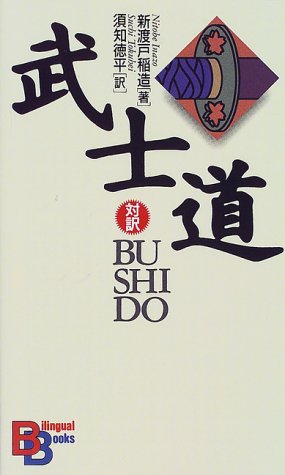
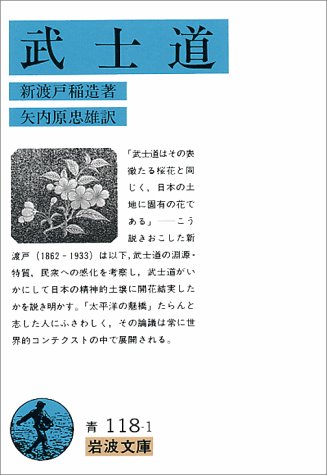
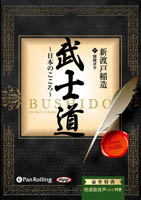 朗読,Read 朗読,Read
|















 朗読,Read
朗読,Read















 朗読,Read
朗読,Read